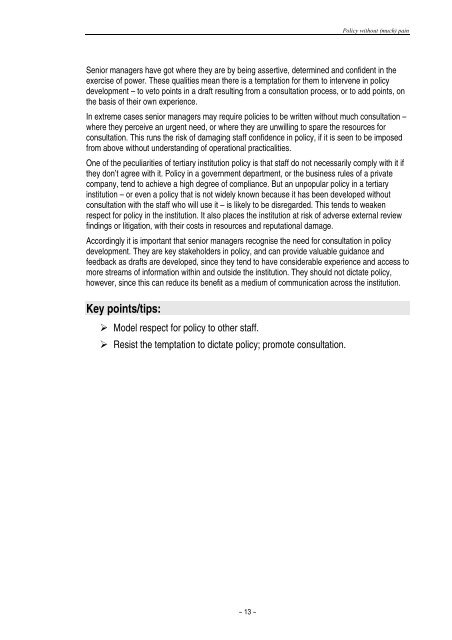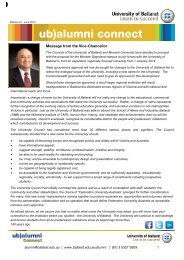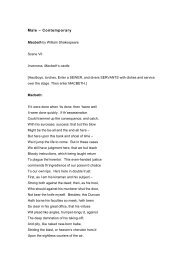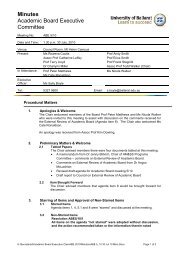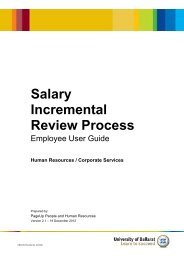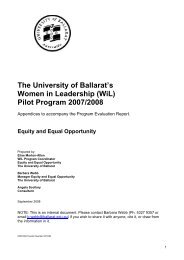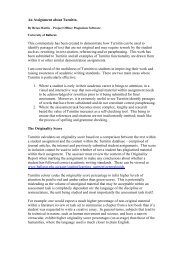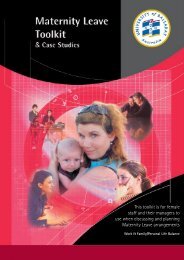Policy without (much) pain - University of Ballarat
Policy without (much) pain - University of Ballarat
Policy without (much) pain - University of Ballarat
- No tags were found...
You also want an ePaper? Increase the reach of your titles
YUMPU automatically turns print PDFs into web optimized ePapers that Google loves.
<strong>Policy</strong> <strong>without</strong> (<strong>much</strong>) <strong>pain</strong>Senior managers have got where they are by being assertive, determined and confident in theexercise <strong>of</strong> power. These qualities mean there is a temptation for them to intervene in policydevelopment – to veto points in a draft resulting from a consultation process, or to add points, onthe basis <strong>of</strong> their own experience.In extreme cases senior managers may require policies to be written <strong>without</strong> <strong>much</strong> consultation –where they perceive an urgent need, or where they are unwilling to spare the resources forconsultation. This runs the risk <strong>of</strong> damaging staff confidence in policy, if it is seen to be imposedfrom above <strong>without</strong> understanding <strong>of</strong> operational practicalities.One <strong>of</strong> the peculiarities <strong>of</strong> tertiary institution policy is that staff do not necessarily comply with it ifthey don’t agree with it. <strong>Policy</strong> in a government department, or the business rules <strong>of</strong> a privatecompany, tend to achieve a high degree <strong>of</strong> compliance. But an unpopular policy in a tertiaryinstitution – or even a policy that is not widely known because it has been developed <strong>without</strong>consultation with the staff who will use it – is likely to be disregarded. This tends to weakenrespect for policy in the institution. It also places the institution at risk <strong>of</strong> adverse external reviewfindings or litigation, with their costs in resources and reputational damage.Accordingly it is important that senior managers recognise the need for consultation in policydevelopment. They are key stakeholders in policy, and can provide valuable guidance andfeedback as drafts are developed, since they tend to have considerable experience and access tomore streams <strong>of</strong> information within and outside the institution. They should not dictate policy,however, since this can reduce its benefit as a medium <strong>of</strong> communication across the institution.Key points/tips:‣ Model respect for policy to other staff.‣ Resist the temptation to dictate policy; promote consultation.~ 13 ~


